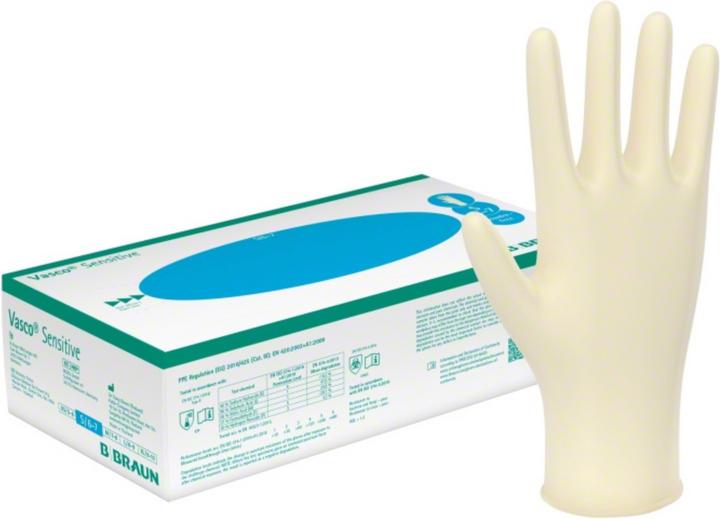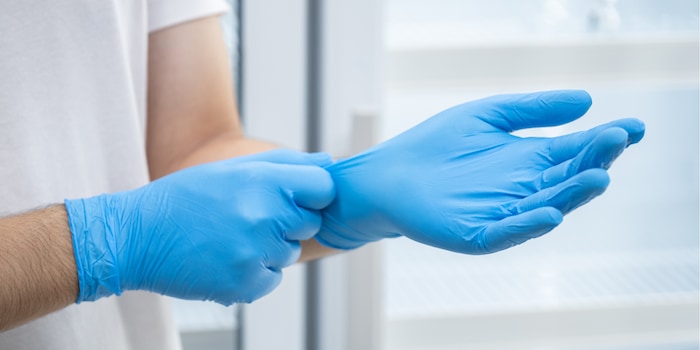

I did it: I had my first prostate exam
I recently underwent my first prostate exam. In this article, I tell you how it came about and how I felt about it. And a urologist explains what to watch out for when it comes to preventive examinations.
It always pays to be cautious when making generalisations. Nevertheless, I dare say that men tend to visit the doctor too late rather than too early. With me and my friends, this often only happens after repeated requests from our wives or partners. In fact, more than once, the doctor has asked me: «Why didn’t you come to me sooner?»
I can only speculate about the reasons for our hesitation. For me, it’s a mixture of overconfidence («What doesn’t kill you makes you stronger»), cost considerations («I don’t have the highest deductible to shell out everything myself now») and also a bit of jitters before heading to see the doctor («Once you start looking, you always find something»).
The latter is especially prominent at a first prostate exam. Because, while it’s normal for women to go to the gynaecologist regularly, many men associate examinations of their genitals and especially the prostate with great shame and unpleasant feelings.
Since I’m nearly 45 and the rule of thumb is supposedly that men should undergo regular preliminary prostate exams from the age of 40, it was clear that I couldn’t put off the decision for too long.
Why aren’t the curtains drawn?
Recently, at my doctor’s office, I’d hardly sat down when the following dialogue ensued:
«Could you possibly refer me to a urologist?»
«If you want, I can do the examination now.»
«You mean right here, right now?»
«Yes, that’s exactly what I mean.»
I hesitated. I felt blindsided. My exemplary resolution was already beginning to falter. But, after a short period of reflection, reason prevailed. I undressed from the waist down and lay on my side. My eyes wandered to the window and I was surprised to see that the curtains weren’t drawn. OK, the building opposite isn’t close. Nevertheless, I imagined, with embarrassment, how someone could see me half naked on the couch at this very moment. Out of the corner of my eye, I watched as my doctor put on latex gloves and rubbed petroleum jelly on his index finger.
«Now, Mr Rupf, this will be a bit uncomfortable. Just try to be as relaxed as possible.»
Ha, that’s easy for you to say, you don’t have to… My train of thought was stopped in its tracks at this point when the doctor put his finger in my behind. What a shit job, I thought to myself as the doctor felt my prostate with his finger. The whole thing only lasted a few seconds, and, although uncomfortable, it wasn’t nearly as bad as I’d imagined.
«Everything’s fine with your prostate, Mr Rupf,» the doctor confirmed.
Don’t wait until you’re in pain
So, all’s well that ends well? Not quite. Because from now on, I’m looking at regular heart, kidney and, uh, prostate exams. But at what age is it actually advisable to start having prostate exams? From conversations with my friends, it quickly became clear to me that there was a great deal of uncertainty and many questions about this. So I’m asking someone who should know. Christian von Bodman is a specialist in urology and medical director of Uroviva, Experts in Urology.
«We recommend a preliminary examination to detect early stage prostate cancer from the age of 50,» he says. So I went to the doctor too soon (for once). «A first examination at the age of 45 could make sense if there’s a history of the condition in the family,» adds the specialist.
He says it’s also important not to wait until you have pain or problems before booking an examination. «The symptoms of prostate cancer appear late. Most men don’t have any symptoms until the tumour is at an advanced stage,» explains von Bodman.
Cancer can affect not only the prostate, but also the testicles. «You can self-screen for testicular cancer – an examination by a urologist is only necessary if there are any abnormalities,» says the specialist. Tumours would usually show up as hard and irregular swellings on a testicle, where pain isn’t typical but can occur.
If you have these symptoms, you should see a doctor
OK, so preliminary examinations make sense from the age of 50. But how often should I have them? «The intervals between examinations can vary,» says von Bodman. «A 50-year-old with a very low PSA value, good urination and no family history can come back for their next check-up after three to five years.» The PSA test determines the amount of «prostate-specific antigen» (PSA) in the blood. An annual check-up can make sense for patients with an increased risk.
So much for a preventative preliminary examination. But there are also cases where you need to visit a doctor immediately. Senior consultant Christian von Bodman reels off several symptoms straight away: «The swelling or enlargement of a testicle, hardening or lumps in a testicle, pulling or tightness in the testicles or in the groin area, sensitivity to touch in the testicle area, swelling of the mammary gland, visible blood in the urine without or without pain or difficulty emptying the bladder.»
If you think about checking your prostate yourself, don’t. «We don’t recommend self-screening. It takes a lot of experience to be able to fully palpate the prostate and assess the surface. This should be left to an experienced specialist,» emphasises Christian von Bodman.
The most common cancer in men
According to the urologist, preliminary examinations only make sense from a certain age: «The risk is very low for those under 35 years of age. Around 0.1 per cent of them will develop prostate cancer in the next ten years,» explains von Bodman. From the age of 50, the risk steadily increases. For a 75-year-old man, the figure is around 5 per cent. Also interesting: a whopping 27.5 per cent of all cancers in men affect the prostate. 15 per cent of all men who die as a result of cancer in Switzerland die of prostate cancer. «Prostate cancer is the most common type of cancer in men. There are around 6,600 new cases every year,» says Bodman.
On the other hand, it’s gratifying that the chances of a cure for prostate cancer are very high. «The survival rate for prostate cancer five years after diagnosis is around 90 per cent,» continues von Bodman. The aggressiveness of prostate cancer can vary considerably, and treatment varies accordingly. «Some men with less aggressive cancer only need their tumour to be monitored with regular check-ups. Other patients need surgery, radiotherapy or hormone deprivation therapy.»
What’s covered by basic insurance?
Because, sometimes, a visit to the doctor for men – like me – is dependent on their wallet, the final question is: does basic insurance cover a preliminary prostate exam? In Germany, the situation is clear: every man over the age of 45 is entitled to an annual statutory cancer screening. In Switzerland, the situation is a bit more complicated. In principle, basic insurance only guarantees services if they’re medically necessary. So, you won’t be reimbursed for a general check-up if there’s no medical need for one. However, if you have a prescription from a doctor, basic insurance will cover it. That means, if I have symptoms or my family doctor sees a need for a preliminary examination (increased risk), basic insurance will cover the cost of one. However, relevant additional insurance will cover the costs anyway.
I’m just happy that I’ve got my «first time» over and done with and will probably only lie half naked on the couch again in five years’ time. Hopefully the curtains will be drawn next time.
Header image: Shutterstock
Half-Danish dad of two and third child of the family, mushroom picker, angler, dedicated public viewer and world champion of putting my foot in it.
Practical solutions for everyday problems with technology, household hacks and much more.
Show all


